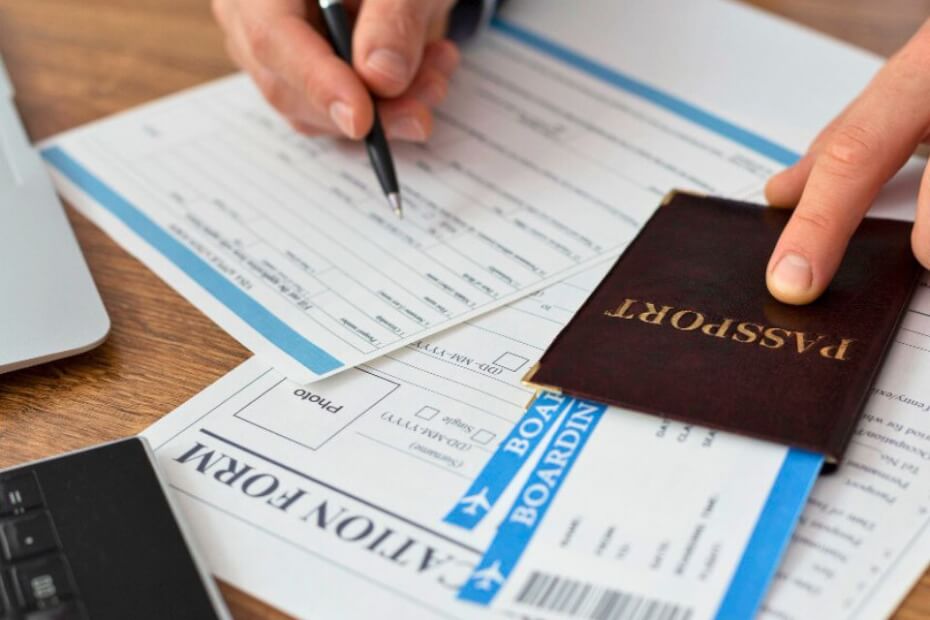
The United Kingdom (UK) is implementing a new Electronic Travel Authorisation (ETA) system for visiting visa-exempt nationals. While applying for the digital travel permit is easy, there is much room for mistakes on the ETA application.
What can happen if applicants commit mistakes on the UK ETA application form? Can one amend or withdraw an erroneous ETA application?
Here’s what you need to know to ensure a smooth application process.
The UK ETA and implementation timeline
The UK ETA is a pre-travel authorization electronically linked to a non-visa traveler’s passport. It allows the government to pre-screen and identify potential threats before they arrive.
All visa-exempt visitors must apply and pay for an ETA before they travel to the UK for short trips, transit, and under the Creative Worker visa concession. This application process can be completed online via the UK government website or the UK ETA app.
The ETA application process requires personal and passport data, honest answers to security questions, and a payment of £10 for the application fee.
Once issued, it allows travel to the UK multiple times over two years, or until the passport it is linked to expires, for visits not exceeding six months.
Currently, nationals from Bahrain, Kuwait, Oman, Qatar, Saudi Arabia, and the United Arab Emirates (ETA) are already required to have an ETA.
From 8 January 2025, visa-exempt non-European nationals will need an ETA to travel to the UK. This includes travelers from the United States, Canada, Australia, and Japan, as applications have opened since 27 November 2024.
From 2 April 2025, all visa-exempt visitors, including European nationals but not Irish citizens, must have an ETA before traveling to the UK. The Home Office will open ETA applications for this group on 5 March 2025.
Common mistakes in a UK ETA application

Completing an ETA application form can be done in 15 minutes. However, because it’s easy, many applicants are prone to rush or overlook things. However, submitting an application with errors or omissions can lead to significant problems.
Double-checking all details before submission can prevent these errors. Here are some frequent issues to watch out for:
Spelling and Grammar Errors
Mistakes in names, addresses, or other fields are common, particularly for non-native English speakers. While minor typographical errors may be overlooked, unintelligible answers could lead to rejection.
Incorrect Passport Information
Lack of care and attention when typing passport numbers, expiration dates, or birthdates are among the most frequent problems.
Inadvertently typing a passport number or expiration date causes confusion, as does omitting numbers or letters from addresses, dates of birth, email addresses, etc.
Failing to disclose minor offenses
The severity of the crime and conviction can complicate the process of applying for a UK ETA. Disclosing all offenses, even minor ones like speeding tickets, is crucial, as failure to do so may be interpreted as deception.
Transparency is key, so include even seemingly irrelevant convictions in the application.
Incomplete Visa History
All previous visa issues or immigration breaches for any country at any given time must be disclosed. Authorities can check the applicant’s history for any prior visa breaches. Any omissions will likely be uncovered during processing and could result in a refusal.
Consequences of mistakes on an ETA application
Errors on a UK ETA application can lead to two primary outcomes—refusal of the application or erroneous approval.
ETA denial or refusal
Significant errors, like incorrect passport numbers, will result in an ETA denial or refusal. Errors on the ETA application are likely to fail identity verification and be flagged as attempts to bypass the system.
Erroneous ETA approval
On rare occasions, mistakes might go unnoticed, and the ETA is granted. Applicants are obligated to report these errors, as failing to do so could result in the ETA being canceled or revoked later.
Repeated submission of erroneous or fraudulent information is a serious offense under UK immigration laws. Consequences include:
- Automatic rejection of the ETA application
- Revocation of an approved ETA
- A ban from entering the UK for up to 10 years
- Possible detention and deportation upon arrival
Applicants flagged for dishonesty will also face scrutiny in any future immigration processes.
Correcting mistakes on a UK ETA application

Once a UK ETA application has been submitted, there is no way to amend or withdraw it. If applicants suspect a mistake in their submitted ETA application, they must act immediately.
Typically, applicants are informed of the reason their ETA application was denied. If the denial was due to simple mistakes, it is possible to re-apply, complete the application correctly, and pay the fee again.
They can also contact the British Home Office and promptly notify the department responsible for processing ETA applications.
Inform the office of what type of mistakes have been made in the ETA application. They will be able to instruct you on what you can do next.
Transparency and quick action can demonstrate honesty, increasing the likelihood of a favorable outcome.
Tips for a successful ETA application
Applying for a UK ETA is straightforward, but attention to detail is crucial. Errors can lead to frustrating delays, rejections, or even legal consequences.
Here are some tips on filling out an ETA application.
- Take Your Time: Although the application can be completed in 15 minutes, don’t rush. A few extra minutes spent double-checking can save weeks of delays later.
- Review Thoroughly: Go over every detail at least twice. Even minor typos in names, addresses, or numbers can lead to problems.
- Seek Help if Needed: If English is not your first language, consider asking someone fluent to review your application.
By ensuring that all information is accurate and complete, you can avoid unnecessary complications and ensure a smooth entry into the UK.

